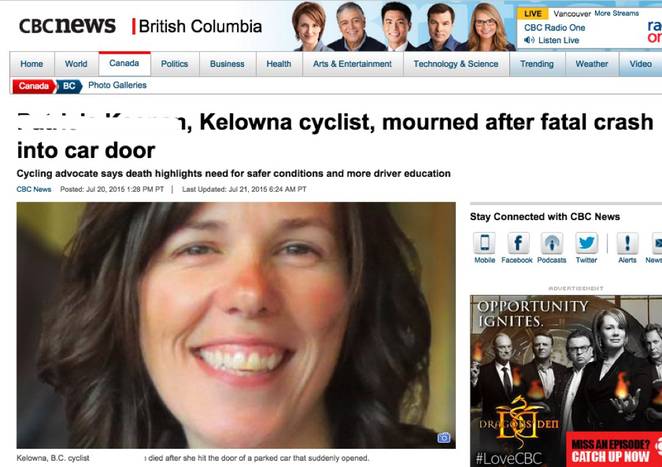“Words are powerful. They shape the way we see the world around us.
“It’s a quote I have used a couple of times, from bike activist Aaron Naparstek. I thought of it again as I saw this tweet from urban designer Gil Penalosa:
Patricia Keenan, 38, died after she hit the door of a parked car that suddenly opened What? http://t.co/3SXWvsOIFP pic.twitter.com/2poUIpqzBA
— Gil Penalosa (@Penalosa_G) July 21, 2015
“That turned out to be the cut line under the photo, not the headline, which was actually worse:
Kelowna cyclist mourned after fatal crash into car door
“Both the cut line and the headline do not state what happened, which is that the driver of the car opened the door in the face of the cyclist. The parked car did not suddenly open; the cyclist did not run into an object that was sitting there in her path; she was killed by the action of a person, the driver of a vehicle.
“Words do make a difference. The way the CBC wrote it, the cyclist almost sounds at fault for running into a door. Or the car is at fault for suddenly opening in some weird way. It is as if they have gone out of their way to contrive words that take the driver out of the story. And of course there has to be this: [she] ‘slammed into the door and, despite wearing a helmet, sustained serious head injuries. She died in hospital two days later.’ An honest headline would have said:
Driver opens car door in front of 38 year old mother on a bicycle, killing her.
“But they never say that. ”
Read how to avoid killing a cyclist with your car door at Treehugger: More on why words matter: Deconstructing a headline.




